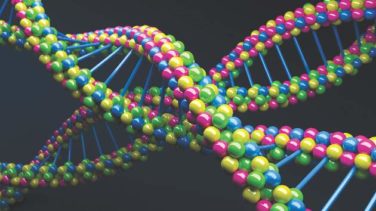Early-stage HER2-positive breast cancers that overexpress a subset of genes involved in the regulation of immune function are much more likely to respond to adjuvant trastuzumab therapy than breast cancers that do not express those genes, according to a report published online Jan. 19 in Journal of Clinical Oncology.
This finding from a secondary analysis of tumor samples obtained in a phase III clinical trial represents “the first demonstration of a cohort of immune function genes that seem to predict benefit from adjuvant trastuzumab,” said Dr. Edith A. Perez of Mayo Clinic, Jacksonville, Fla., and her associates.
The original trial “was one of several large studies that helped define the standard of care for patients with early-stage HER2-positive breast cancer,” demonstrating that adding trastuzumab to adjuvant chemotherapy was effective at preventing recurrences. However, 20%-25% of women with these tumors still relapse despite this targeted approach, and a biomarker to identify this subset of nonresponders is urgently needed, the investigators said (J. Clin. Oncol. 2015 Jan. 19. [ doi:10.1200/JCO.2014.57.6298 ]).
To identify such a biomarker, they performed whole transcriptome analysis of 1,282 breast cancer samples collected in the trial that were evaluable for gene expression profiling. A total of 433 of the cancers had been treated with anthracycline plus cyclophosphamide, followed by paclitaxel. The remaining cancers had been treated with anthracycline plus cyclophosphamide followed by paclitaxel, then trastuzumab (477 tumors) or anthracycline plus cyclophosphamide followed by concurrent paclitaxel plus trastuzumab (372 tumors). There were 204 cancer recurrences overall.
The investigators identified 485 genes expressed by the cancers that were significantly associated with recurrence-free survival and discovered that certain genes linked to immune functions – including T- and B-cell responses, chemokine signaling, chemotaxis, and inflammation – predicted higher recurrence-free survival only in women treated with trastuzumab. They then built a predictive genetic signature comprising 14 genes related to immune function, which was used to designate which tumors were immune response enriched (IRE) and which were non–immune response enriched (NIRE).
Recurrence-free survival was significantly better for women with IRE tumors who received trastuzumab, compared with those who received chemotherapy alone, with a hazard ratio of 0.36. In contrast, recurrence-free survival was no different between women with NIRE tumors who received trastuzumab and those who received chemotherapy alone.
“Our data indicate that a subset of HER2-positive tumors likely manifests a high level of immunologic activity, as evidenced by expression of a diverse cohort of immune function genes.” Thus, the study results suggest that “benefit from adjuvant trastuzumab, beyond the benefit conveyed by chemotherapy alone, may reside largely within this cohort of immune-enriched tumors,” Dr. Perez and her associates said.
It is hoped that these findings, if confirmed in larger studies, can be used to predict which patients would most benefit from trastuzumab. More important, other approaches could be devised for treating patients with NIRE tumors who wouldn’t respond to trastuzumab and who are at high risk for recurrence. Perhaps enhancing the decreased immune activity of their cancers could sensitize the tumors to further biologic therapy, the investigators added.



